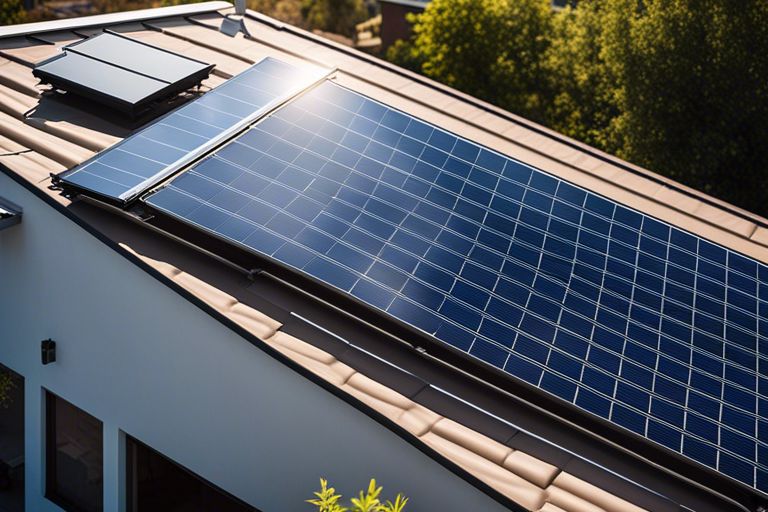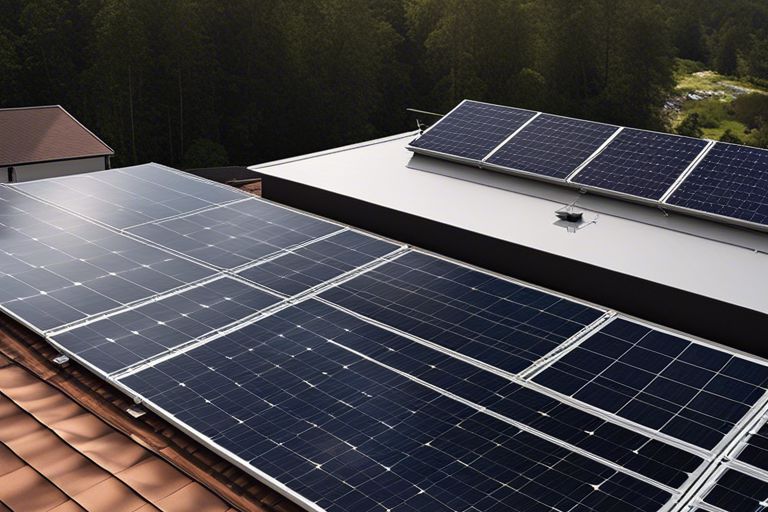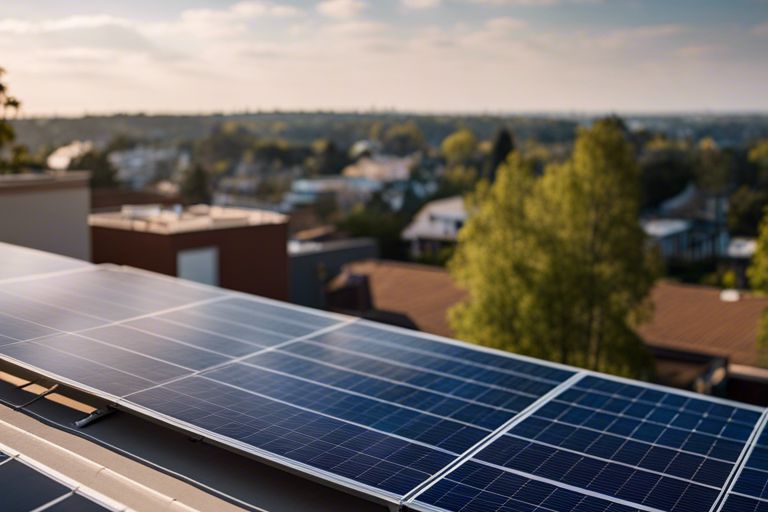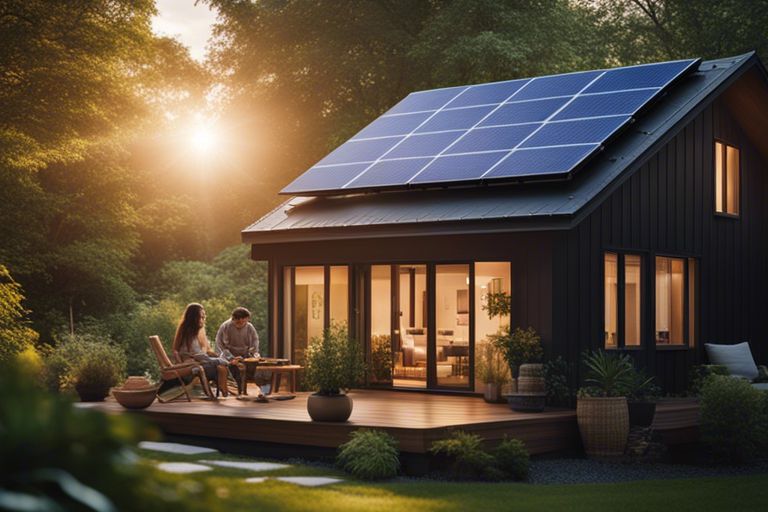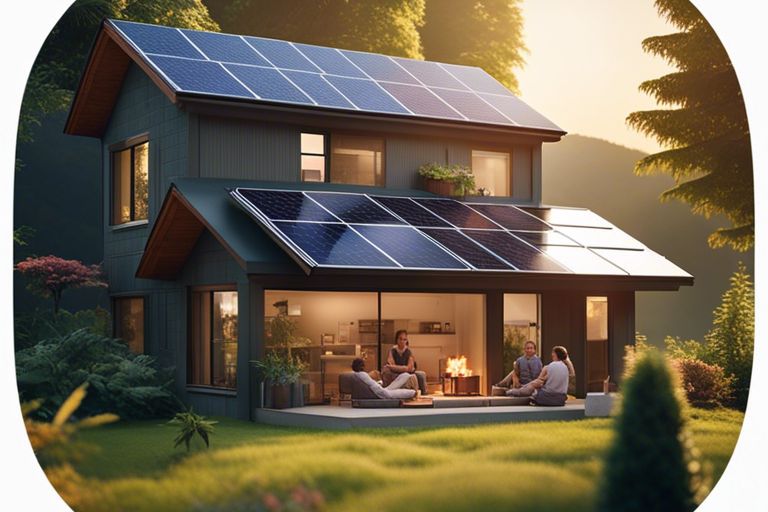There’s no denying the benefits of switching to solar power, but one burning question remains – how much does a 15kW solar system cost? When considering this investment in your home, it’s important to understand the factors that influence the overall cost. From the quality of solar panels to installation fees, we will break down the pricing components to help you make an informed decision. By the end of this article, you’ll have a clear idea of what to expect when budgeting for a 15kW solar system for your energy needs.
Key Takeaways:
- Size Matters: The cost of a 15kW solar system can vary based on the quality and brand of the components used, installation complexity, and location.
- Installation Costs: Installation costs, including labor, permits, and equipment, can significantly impact the total cost of a 15kW solar system.
- Government Incentives: Taking advantage of available government incentives, such as rebates and tax credits, can help reduce the upfront cost of installing a 15kW solar system.
Factors Affecting the Cost of a 15kW Solar System
Before venturing into the cost breakdown of a 15kW solar system, it’s crucial to understand the factors that can influence the overall price. Several key elements can affect how much you’ll end up paying for your solar installation. Perceiving these factors can help you make informed decisions to optimize your investment.
System Size and Complexity
To determine the cost of a 15kW solar system, one crucial factor to consider is the system’s size and complexity. Larger systems with more panels will naturally cost more than smaller ones. Additionally, the complexity of the installation, such as the need for additional equipment or customization, can also impact the overall price. Ensuring that your system is tailored to your energy needs and property specifics is vital in determining the final cost.
Type and Quality of Equipment
Quality equipment is another significant factor influencing the cost of your 15kW solar system. High-quality solar panels, inverters, and other components may come at a higher initial cost but can provide better efficiency and durability in the long run. Investing in top-tier equipment can result in higher initial costs but can offer better performance and longevity, ultimately maximizing your return on investment. A knowledgeable solar provider can guide you in selecting the most suitable equipment for your specific needs.
Installation Company and Labor Costs
Complexity in the installation process and labor costs are crucial components in determining the overall cost of your 15kW solar system. Different installation companies may offer varying prices based on their expertise, experience, and location. It’s crucial to choose a reputable company with a track record of successful installations to ensure that your system is set up correctly and efficiently. While labor costs may make up a significant portion of the total price, prioritizing quality installation is key to the long-term performance of your solar system.
Roof Type and Condition
System placement on your roof can also impact the cost of your 15kW solar system. The type and condition of your roof can affect the complexity of the installation process, influencing the overall price. Factors such as roof material, pitch, shading, and structural integrity play a role in determining installation difficulty. Plus, additional features like roof obstructions or the need for reinforcements can add to the total cost of the system.
Overall, understanding these factors can help you navigate the cost considerations of a 15kW solar system effectively. By analyzing these elements and working with a knowledgeable solar provider, you can customize a solar solution that meets your energy needs while maximizing the value of your investment.
Average Cost of a 15kW Solar System
National Average
The national average cost of a 15kW solar system typically ranges from $30,000 to $45,000 before incentives. This cost includes solar panels, inverter, mounting hardware, and installation. The final price can vary based on the quality of equipment, installer fees, and any additional features you may choose to include.
Regional Variations
Cost variations for a 15kW solar system can be influenced by your location. For example, in regions with higher labor costs or challenging installation conditions, such as roofs with complex angles, the price may be higher compared to areas with easier installation processes. Additionally, local incentives and rebates can impact the overall cost of the system.
Regional prices can also be affected by competition among solar installers. In areas with more solar companies vying for business, you may find more competitive pricing for your 15kW solar system installation.
Comparison to Smaller Systems (e.g., 10kW)
Systems Comparison
| 15kW Solar System | 10kW Solar System |
| Higher initial cost | Lower initial cost |
| More energy production | Limited energy production |
When comparing the cost of a 15kW solar system to a smaller system like a 10kW, you’ll notice that the 15kW system has a higher upfront cost but also offers greater energy production potential. This means that while you may pay more initially, you can generate more electricity and potentially save more on your utility bills in the long run.
Breakdown of Costs
Now let’s break down the costs of a 15kW solar system.
Solar Panels
Costs for solar panels will typically make up the bulk of your expenses when installing a 15kW solar system. High-quality solar panels are necessary for maximizing the energy output of your system and ensuring its longevity.
Inverters and Mounting Hardware
When considering the cost of your 15kW solar system, don’t forget about the inverters and mounting hardware. These components are crucial for converting the energy captured by the solar panels into usable electricity for your home.
For instance, investing in microinverters can increase the efficiency of your system by optimizing the performance of each individual solar panel. Additionally, sturdy mounting hardware is necessary for securing your panels and ensuring they remain in place, even during harsh weather conditions.
Installation Labor and Permits
Costs for installation labor and permits are also important factors to consider when budgeting for your 15kW solar system. Hiring experienced professionals to install your system will ensure that it is set up correctly and operates efficiently.
As far as permits, the regulations vary by location, so it’s necessary to factor in any potential permit costs when planning your solar installation. Ensuring that all permits are in place will prevent any delays or issues with your solar project.
Monitoring and Maintenance
Mounting monitoring and maintenance equipment is another cost to consider when installing a 15kW solar system. Monitoring systems allow you to track the performance of your system, identify any issues, and ensure it is operating at its full capacity.
This equipment may include performance meters, data loggers, and other tools to help you keep your system running smoothly. Investing in regular maintenance will also prolong the lifespan of your solar system and maximize its energy output over time.
Financing Options and Incentives
Once again, when considering investing in a 15kW solar system, you have various financing options and incentives to help you make the switch to solar power more affordable and enticing. Let’s explore some of the common ways you can finance your solar system purchase.
Cash Purchase
One option for financing your 15kW solar system is to make a cash purchase. By paying for the system upfront, you can take advantage of any available discounts or rebates, ultimately saving you money in the long run. While this may require a larger initial investment, it can provide you with immediate savings on your electricity bills and a quicker return on investment.
Loan Financing
On the other hand, if you prefer not to pay for the system in full upfront, you can opt for loan financing. With a solar loan, you can spread out the cost of the system over time, making it more manageable for your budget. Additionally, many financial institutions offer solar-specific loans with favorable terms, such as low-interest rates and flexible repayment options, making it easier for you to go solar without breaking the bank.
Loan Financing:
When choosing a solar loan, be sure to compare different lenders and loan terms to find the best option for your financial situation. Look for loans with competitive interest rates and favorable terms that suit your budget and energy goals.
Leasing and Power Purchase Agreements
Loan:
Another popular financing option for solar installations is leasing or entering a power purchase agreement (PPA). With a solar lease, you pay a fixed monthly amount to use the solar energy generated by the system on your property. On the other hand, a PPA involves purchasing the power produced by the system at a predetermined rate, often lower than standard utility rates. Both options require little to no upfront cost, making solar power more accessible to homeowners looking to save on their energy bills.
The
Federal and State Tax Credits
An important incentive to consider when investing in a 15kW solar system is the availability of federal and state tax credits. These credits can significantly reduce the cost of your solar installation, making it a more cost-effective investment in the long run. By taking advantage of these incentives, you can lower your tax liability while reaping the benefits of clean, renewable energy for your home.
Credits:
To maximize your savings, be sure to research and understand the eligibility requirements and claiming process for federal and state tax credits for solar energy. By leveraging these incentives, you can make your transition to solar power even more affordable and environmentally friendly.
ROI and Payback Period
Energy Savings and Bill Reduction
On top of the environmental benefits, installing a 15kW solar system can lead to significant cost savings on your electricity bills. By generating your own renewable energy, you can reduce your reliance on the grid and potentially eliminate your electricity bills altogether. With a system of this size, you can expect to see a noticeable decrease in your monthly expenses, allowing you to allocate those funds elsewhere.
Increased Property Value
Energy efficiency is becoming a top priority for homebuyers, and installing a 15kW solar system can increase the value of your property. Homes equipped with solar panels are seen as more attractive to buyers due to the long-term cost savings and sustainable energy production they offer. As a result, investing in solar can not only benefit you now but also pay off when it comes time to sell your home.
Energy-efficient features like solar panels can set your property apart in a competitive real estate market, attracting environmentally conscious buyers willing to pay a premium for a sustainable home.
Payback Period and Carbon Offset
On average, a 15kW solar system can pay for itself in 5 to 7 years through energy savings and potential government incentives. Once you have recouped your initial investment, you can enjoy decades of free, renewable energy. Additionally, by producing your own electricity from the sun, you are significantly reducing your carbon footprint and contributing to a healthier environment for future generations.
Increased energy independence and reduced reliance on fossil fuels also play a crucial role in combating climate change and promoting sustainability in your community.
Additional Costs and Considerations
Despite the initial cost of installing a 15kW solar system, there are additional costs and considerations you may need to factor in to optimize your solar setup and maximize its benefits.
Battery Backup Systems
Any solar system owner looking to ensure uninterrupted power supply during outages or wanting to store excess energy for nighttime use may consider investing in a battery backup system. While this will add to the overall cost, it provides you with the peace of mind and increased self-sufficiency.
Energy Storage Solutions
Solutions like solar batteries or other energy storage systems can help you store excess energy generated during the day for use when the sun isn’t shining. While these solutions can increase the upfront cost, they can help you make the most of your solar system and reduce your dependence on the grid.
Backup energy storage systems can also help you take advantage of time-of-use pricing, where you can store energy when electricity rates are low and use it when rates are high, saving you money in the long run.
System Upgrades and Expansions
An important consideration is the potential for system upgrades and expansions in the future. As your energy needs grow or new technologies emerge, you may want to add more panels, upgrade your inverter, or expand your battery storage capacity. Planning for these possibilities from the outset can save you time and money down the line.
Battery technology is continuously evolving, and new innovations may offer improved energy storage capacity and efficiency. Keeping an eye on these developments can help you plan for future upgrades that enhance the performance of your solar system.
Conclusion
With these considerations in mind, you now have a better understanding of how the cost of a 15kW solar system is determined. Factors such as the quality of materials, installation costs, incentives, and your location can all influence the overall price. It’s important to do your research, compare quotes from different providers, and calculate the long-term savings to make an informed decision about investing in solar energy for your home or business.
Note, while the upfront cost of a 15kW solar system may seem significant, the long-term benefits in terms of energy savings, environmental impact, and potential incentives can make it a wise and cost-effective choice in the long run. By carefully evaluating your options and working with reputable solar providers, you can make a smart investment that benefits both your wallet and the planet.
FAQ
Q: How much does a 15kW solar system cost?
A: The cost of a 15kW solar system can vary depending on factors such as the quality of the solar panels, the brand of inverters used, installation costs, and any additional features like monitoring systems. On average, you can expect to pay between $25,000 to $35,000 for a 15kW solar system before any incentives or rebates.
Q: Are there any government incentives or rebates available for installing a 15kW solar system?
A: Yes, there are several government incentives and rebates available for installing a 15kW solar system. These can include federal tax credits, state rebates, and local incentives. These incentives can help reduce the upfront cost of installing a solar system and make it more affordable for homeowners and businesses.
Q: How long will it take for a 15kW solar system to pay for itself through energy savings?
A: The payback period for a 15kW solar system can vary depending on your location, energy usage, and the cost of electricity in your area. On average, most homeowners find that their 15kW solar system pays for itself within 5 to 7 years through energy savings. After the system has paid for itself, you can continue to enjoy free or reduced-cost electricity for many years to come.
